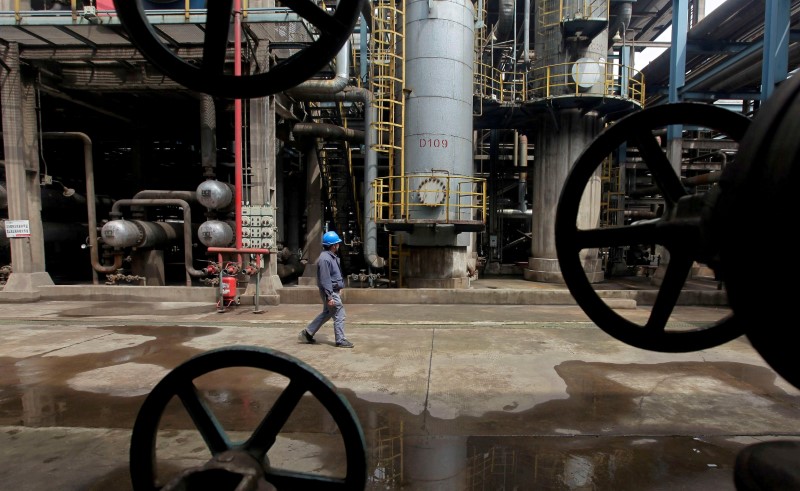Oil Falls in Asia After Volatile U.S. Session
2022.07.20 05:33

By Zhang Mengying
Investing.com – Efforts by central banks to keep inflation in check and expectations of weakening demand in the U.S. came together to keep oil prices in check Wednesday morning in Asia.
Brent oil futures for September delivery fell 0.32% to $106.88 by 6:28 PM ET (1:28 AM GMT) and crude oil WTI futures fell 0.65% to $100.08.
The marginal fall in Asia Wednesday morning followed a volatile session in the U.S. on Tuesday, which ended with Brent oil futures settling 1% higher and WTI up 1.6% after being down close to 2%.
“Crude oil has staged an incredible turnaround today,” Robert Yawger, executive director of energy futures at Mizuho told Reuters. “There was no big red bullish headline to greenlight the rally, but the combination of beaten down open interest and low trade volume will often encourage wild price swings.”
The fall in Asia trade followed the release of figures from the American Petroleum Institute (API) on Tuesday that showed U.S. stocks of crude rose by 1.86 million barrels during the week to July 15. The API also released data on gasoline inventories, with a rose by 1.29 million barrels during the week, following by another rise of 2.9 million barrels a week earlier.
The back-to-back increases in inventories, even during the busy summer driving season, suggests demand for fuel could be ebbing, holding prices in check.
Further data on crude and fuel inventories from the U.S. Energy Information Administration (EIA) is expected overnight.
Supporting prices were concerns about whether the Organization of the Petroleum Exporting Countries would be able to raise production in any kind of significant way. On Monday, an adviser to President Joe Biden told CBS that he expects prices for gasoline to fall significantly, after a rapid surge following Russia’s invasion of Ukraine.
“This is the fastest decline rate that we’ve seen against a major increase in oil prices during a war in Eu ripe, where one of the parties in the war is the third largest producer in the world. So these are extraordinary circumstances,” said Amos Hochstein, Biden’s senior adviser for energy security.








